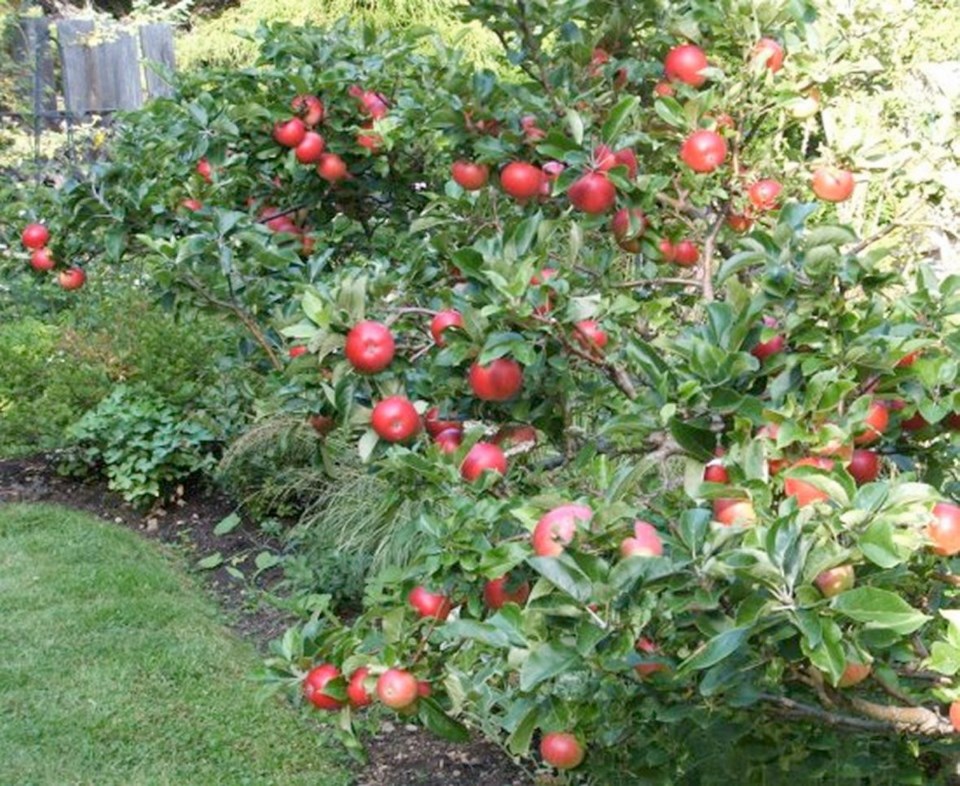Dear Helen: I have two, very large, garden sage (Salvia officinalis, culinary sage) bushes in my front garden. They were there when I moved in four years ago. I have fertilized and pruned them, and propped up floppy branches, but still they look yellowed, messy, and sad.
C.N.
In my experience it’s futile attempting to fully rehabilitate these and other small, woody shrubs like overgrown heathers and thyme plants. Replacements are inexpensive.
If they were mine, I’d haul them out and recondition the soil to receive new plants in the spring, when you will find a lovely variety of culinary sages wherever herb plants are sold. In fact, you could easily create a fragrant and colourful sage garden with golden, purple, and tricolor sages as well as the commonly grown grey-green one. My favourite among the usual grey-green types is Berggarten, which has a pleasingly compact, robust habit.
To view these and other sages visit the website of Richters Herbs in Ontario at Richters.com.
Dear Helen: Two dwarf apple trees in my south-facing back garden have produced well in the past, but this year, when I returned from an August vacation, I found many of the apples had dropped and the ones left on the tree had skin punctures and a small white worm inside. What can I do to prevent this damage next year?
C.C.
The apple maggot, a species of fruit fly, is a relatively new pest in coastal gardens. The adult is a small fly with a black body and transparent wings with crosswise black bands. They emerge from pupation in the soil in early summer to puncture the fruit and lay eggs singly from July to early October. The eggs hatch quickly into small, cream-coloured maggots that tunnel into the flesh and feed before they leave the fruit to pupate and overwinter in the soil. There is one generation per year.
Control lies in prevention. It is important to collect every dropped apple. Do not compost them. Freeze the apples in a plastic bag to kill the maggots before burying them in the garden. Prevent infestations by using sturdy, long-lasting insect netting (knitted monofilament fabric). The netting can be sewn into bags large enough to secure over a small fruit tree or made into small bags to cover individual fruit.
Complete the bagging as soon as the fruit has set and thinning is finished. British and Austalian gardeners have used this insect netting for years. Russell Nursery in North Saanich and Dinter Nursery in Duncan sell knitted monofilament insect mesh.
Dear Helen: My 10-year old Cornus kousa has never bloomed, though it’s a healthy, bushy tree. My garden is very shady.
J.S.
Cornus kousa (Japanese dogwood) requires sun to ripen the wood and promote flowerbud formation. Another factor could be watering. These shrubby trees do thrive on adequate summer moisture, but flowerbud formation can be affected by over-watering as well as by shady conditions. Irrigation systems keyed to deliver frequent and abundant supplies of water can be a problem.
Dear Helen: Now that my zonal geranium (Pelargonium) cuttings have rooted in a soil-free mix in communal pots enclosed in plastic, how do I overwinter them?
J.M.
Take the plastic cover off right away. The dampness inside a plastic cover promotes “black leg,” or rot at the soil line, in zonal geraniums.
Pot the rooted cuttings individually in small pots to winter at a bright window, or under plant lights. Water minimally in winter and, if you wish, take more cuttings using new late winter or early spring growth for an extended collection of plants.
GARDEN EVENTS
Dahlia meeting. The Victoria Dahlia Society will meet on Thursday at 7:30 p.m. in The Wellesley retirement home, 2800 Blanshard St. The entrance is on Market Street. The meeting will feature executive committee elections and the society’s fabulous tuber auction. Everyone is welcome.
Master Gardener information. The Horticulture Centre of the Pacific, 505 Quayle Rd. in Saanich, is hosting an information session on the Master Gardener Program next Wednesday at 6:30 p.m. Call 250-479-6162 to register. The program is an interesting and ambitious 31-session course, beginning in January, for gardeners who wish to increase their knowledge and join a community of enthusiastic amateur gardeners. hcp.ca/become-a-master-gardener.
